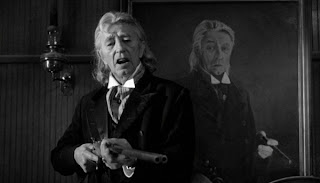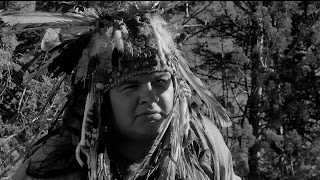There is never a bad reason to revisit the
Alien franchise. I've seen them all, every single
Alien (the original, -
s, -³,
Resurrection,
vs. Predator and
vP: Requiem) and almost all of them are worth seeing, even if they're utter crap. For whatever reason, as I waited to for a suitable time to go see
Prometheus, I realized I hadn't watched the first two movies in almost a decade. I can honestly do without the rest of the series (although
AvP:R was pretty amusing), but those two are examples of greatness that do not often come along in science fiction.
 |
| Like curly hair and over-the-head headsets |
I doubt I have anything too original to add to the chorus of positive reviews for
Alien. That won't stop me from reviewing it, but it does make outlining the plot in detail seem a bit unnecessary. In short, some glorified intergalactic truckers on the spaceship
Nostromo are forced (economically, not physically) to investigate a distress signal deep in Nebraska (AKA "middle-of-nowhere") space. The signal comes from an alien vessel, and the aliens that sent it are long dead. However, in the process of determining that fact, the crew of the
Nostromo also accidentally encounter the creatures that killed off the aliens. Worse, they bring one onto the ship with them and continue their voyage home. Hence the tagline, "In space, no one an hear you scream."
 |
| "...Unless you have radios in your space suits, that is" |
There's quite a bit more to it that just that, but explaining science fiction plots typically leads me to over-explaining them because I tend to find the little details in these movies fascinating. And for people who enjoy reading into the production values of sci-fi movies,
Alien is a treat. Unlike just about every space flick before this one (
Star Wars may be the earliest example I can think of for this), the spaceship and crew are not flawlessly clean; this is a universe where space travel has been around for a while, and there are spaceship equivalents of rust buckets. This isn't a film that relies on special effects or fancy production values to succeed, but the unspoken history that the production design implies --- for the ship, for the spacesuits, for the alien species and crashed ship, etc. --- is very cool.
 |
| Implication of the crew's appearance: fashion peaked in 1979 |
The acting in
Alien is quite good for something that, on paper, amounts to a genre mish-mash. I didn't realize it until I started browsing through their filmographies, but most of the cast in this film was fairly unknown at the time of its release; while many of the actors had been working for ten or fifteen years, they primarily played small character roles. That means that the highest-profile actor in
Alien is
John Hurt, who received some award nominations the year before for his work in
The Midnight Express. As far as his performance goes, it was fine until it was rudely interrupted by his impending death.
 |
| Less erotic than it looks |
Isn't that cool, though? It's not something that a modern audience would think twice about, what with
Sigourney Weaver starring in three other
Alien pics, but having Hurt play the first victim is on par with Janet Leigh's surprise death in
Psycho or Drew Barrymore's in
Scream; you just don't expect the most well-known actor in the film to exit that early. Thankfully, the non-Hurt cast is pretty respectable, so you don't really miss Hurt's gravelly voice too much as you're being sucked into this movie. Obviously, Weaver is the star; she does a very good job here, assuming the lead as she makes smart and hard decisions and takes control when she has to. This was her first major role, and she was pretty bad-ass for a lady with awful hair.
Tom Skerritt was definitely the second most likable and logical character in the film; Skerritt has never really wowed me as an actor, but he has always played authority figures well, even before he started going gray.
Yaphet Kotto, who I generally like, starts out the film utterly annoying, but he more than redeems himself by the end, playing up his fear and machismo as much as his small role would allow.
Harry Dean Stanton was Kotto's partner in crime, and he gave a typical Stanton performance. He wasn't outstanding, but he always adds a bit of world-weariness to any role he's given. Probably the best supporting character, though, was played by
Ian Holm. Already a veteran British Shakespearean actor by this point, Holm had yet to make much of an impression in an American film. What I like about his performance is that it is subtle...until it suddenly isn't.
 |
| Tapioca and marbles: not key elements in "subtle" |
Then he gets honest-to-goodness action scenes and a pretty fantastic special effects scene. His character's reveal is a shock the first time you view it (unless you're familiar with the sequels, I suppose), and I really liked how his character acquiesced to certain things early on, but was still such a sinister company man at heart. The only actor I didn't really care for was
Veronica Cartwright, who more or less represented what Scott hoped the audience was feeling. In other words, she whimpered and yelped a lot.
While I do like the acting in
Alien, this is definitely not a film that relies heavily on a power performance. This is a mood piece, more than anything else. This was only the second film to be directed by
Ridley Scott, but his direction is what makes this film so fantastic. If
Alien was simply a science fiction film, we would still be talking about Ridley Scott's team pre-production team. I loved the look and feel of the ship, I liked the alien planet, and the futuristic tech on display (mostly in the form of the android) was very cool. Of course, the best part of the production was the design of the xenomorph (AKA the titular alien). How awesome is this thing?
It looks like a shark-person made with the sexy time to some demon scorpion and then covered their love-spawn in
Nickelodeon Gak. This alien is one of the most visually impressive creatures to ever hit the big screen, and that's even before seeing it in action. When you combine the fantastic production with practical effects --- as good as it looks, most of the special effects are made with puppets and creativity --- this movie becomes something more. It moves from "cool idea" to "cool movie," and that's still disregarding what actually happens in the film. With Scott's talent for building suspense, you wind up with something truly special. And when I reference the suspense in this film, I'm not talking about "Don't go into the basement, dumbass!" I'm not even talking about "Wait for it...wait for it...wait for it...oh, it's only the cat ---- KNIFE IN THE FACE!" I'm talking about a pervasive sense of dread that few horror films come close to matching. Scott slowly reveals more and more about the alien menace, but still keeps the audiences off-guard. The alien changes its appearance and the way it attacks throughout the film, so you're never quite sure what to expect.
 |
| Except death. You always expect death |
One of the things that I like best about
Alien, though, is the immorality of The Corporation. It's one thing to make a monster movie, but adding duplicity and cutthroat capitalism changes the threat from a simple (although dangerous) external one, to a two-front war, where the characters have to watch their backs, too. Most movies would be happy to have just one of these layers, which is another reason
Alien is such an interesting watch.
This is only the second or third time I have sat down to watch
Alien, and it impresses me more and more each time. I love when films transcend their genres, so the way
Alien combines awesome sci-fi with horror just blows me away. When watching movies with my friends, we often skip over this film in favor of the louder and more action-packed
Aliens, but Ridley Scott's direction has won me over. I am finally convinced that this is the best
Alien movie. Everything about it, from the slow reveal of the title in the opening credits to the genuinely shocking chest-burst scene, all the way to the fourth act scares is wonderful.
 |
| What a rip-off! They did the same thing in Spaceballs! |
I don't even mind the stupidity of the characters risking their lives for a cat or the fact that the iconic egg image on the movie poster doesn't resemble the actual eggs in the film very much. This is a complex story with good, old-fashioned special effects and a slow-burning story that effectively amps up the terror in the plot. And that's all it's about. There are no distractions --- how many other filmmakers would have horned in a romantic subplot here? --- because this is all about dread and terror, and
Alien does what it does so very, very well.





































